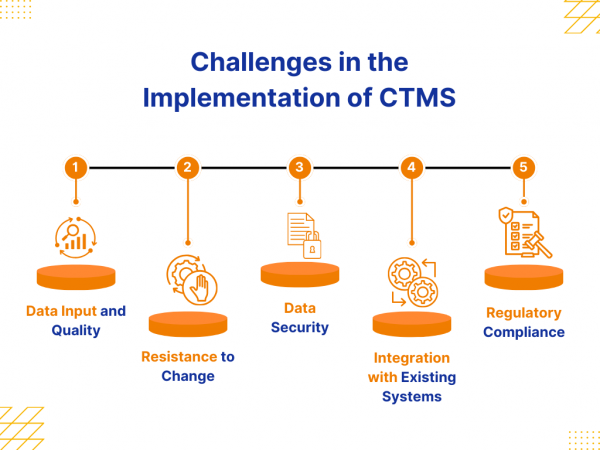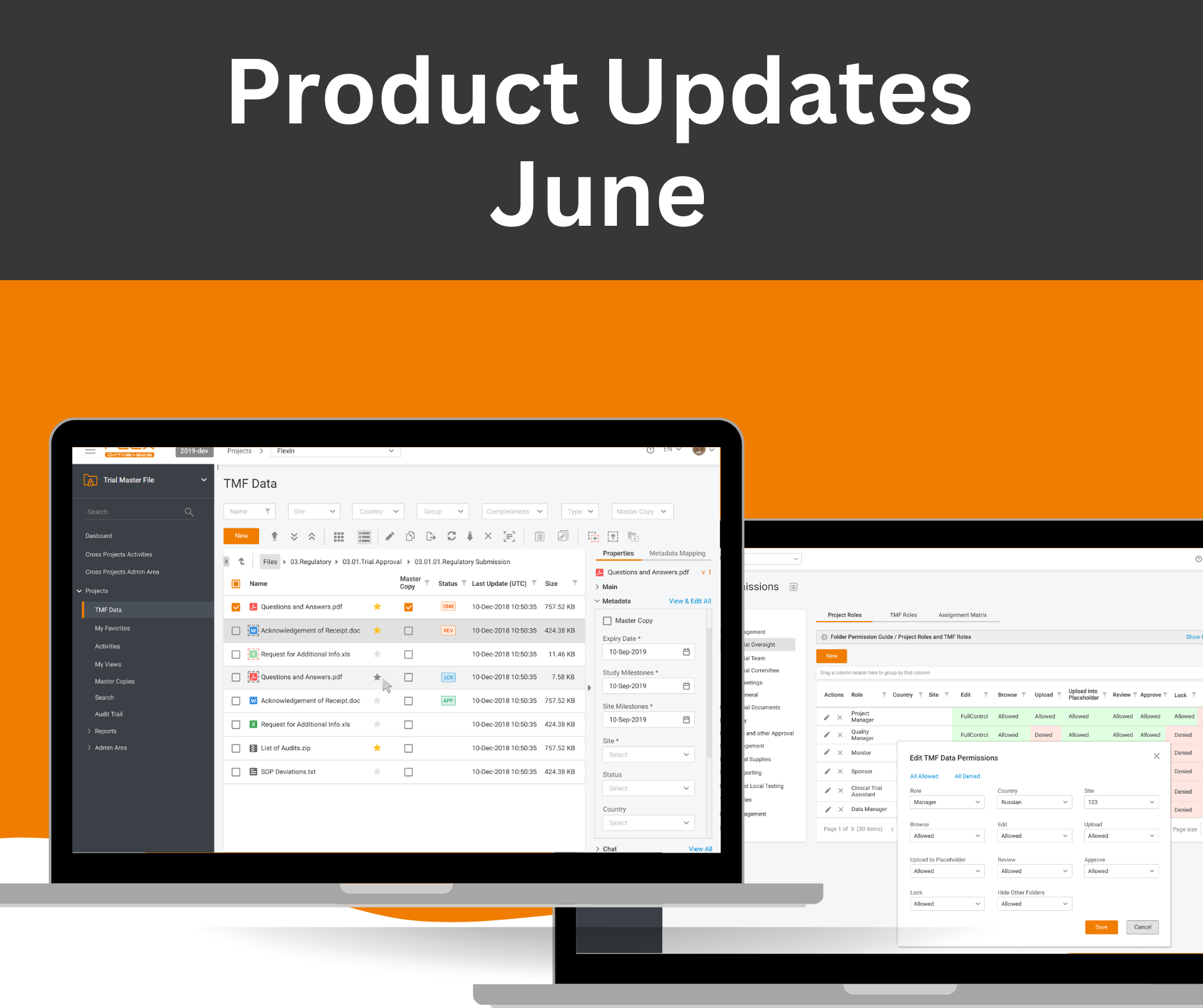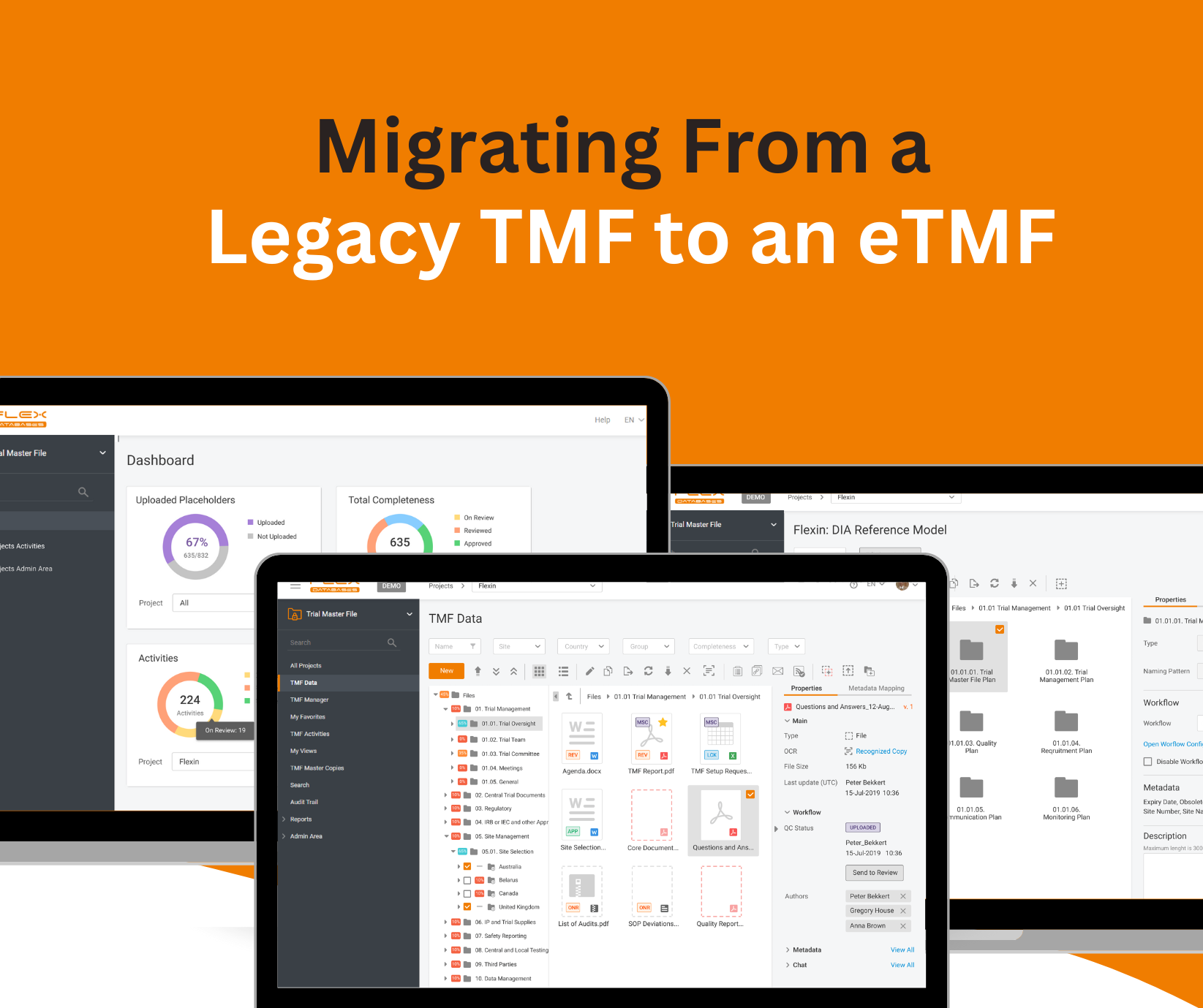Challenges in the Implementation of CTMS
September 18, 2024

Implementation of a Clinical Trial Management System (CTMS) can streamline operations, improve data management, and enhance trial oversight. However, the process also brings a range of challenges that must be addressed to achieve a successful implementation.
These challenges often stem from technical and human factors, including data quality, system integration, and regulatory demands. Identifying these potential hurdles early on helps organizations plan accordingly and optimize the implementation process. Below, we discuss some common obstacles faced during CTMS implementation and how organizations can overcome them to ensure efficient clinical trial management.
Data Input and Quality
A significant challenge in CTMS implementation is ensuring accurate and consistent data input. Data quality directly affects the outcomes of clinical trials, making it critical to implement strict data validation rules and quality assurance processes. Inconsistent data entry formats, missing fields, and erroneous data can compromise the integrity of trial results and regulatory submissions.
One way to address this challenge is by conducting thorough training for all users involved in data entry and adopting automated data validation tools that flag potential inconsistencies. Ensuring the quality of data input from the outset reduces the need for costly corrections later.
Resistance to Change
Resistance to change is a common issue when introducing any new system, and CTMS is no exception. Employees who are accustomed to manual processes or legacy systems may be reluctant to adopt a new, more sophisticated platform.
Overcoming this resistance requires clear communication about the benefits of the CTMS, such as improved efficiency, better data management, and enhanced compliance tracking. Additionally, providing adequate training and support throughout the transition process can ease the shift and build user confidence in the new system. A phased implementation approach can also help, allowing users to gradually adapt to the changes.
Data Security
Data security is a top priority in the healthcare and clinical research industries. When implementing a CTMS, safeguarding sensitive patient data and ensuring compliance with data protection regulations, such as HIPAA or GDPR, are critical.
The challenge lies in balancing robust security measures with system accessibility and usability. Organizations must ensure that the CTMS includes advanced security features such as encryption, multi-factor authentication, and role-based access controls. Regular security audits and adherence to data security protocols help mitigate the risk of data breaches, ensuring that patient data remains secure throughout the trial process.
Integration with Existing Systems
Integrating a CTMS with existing systems, such as electronic data capture (EDC) tools, financial management platforms, or regulatory submission software, can be complex. The success of CTMS implementation often depends on how well it can communicate and exchange data with these systems.
Without seamless integration, organizations may face data silos, duplicate entries, or inconsistent information across platforms. To address this, it’s crucial to choose a CTMS that supports interoperability standards and has robust APIs or connectors. Engaging IT teams early in the process ensures that the necessary integration frameworks are established from the start.
Regulatory Compliance
Regulatory compliance is a cornerstone of clinical trial management, and a CTMS must be able to support adherence to various regulatory requirements across different regions. Ensuring that the system complies with international regulations, such as those from the FDA, EMA, or ICH, can be challenging, particularly when managing trials across multiple countries.
A CTMS should be equipped with features that help automate compliance tracking, document version control, and audit trail maintenance. Staying up to date with evolving regulations and ensuring the system is regularly updated to reflect these changes is essential to avoid compliance risks and maintain trial integrity.



